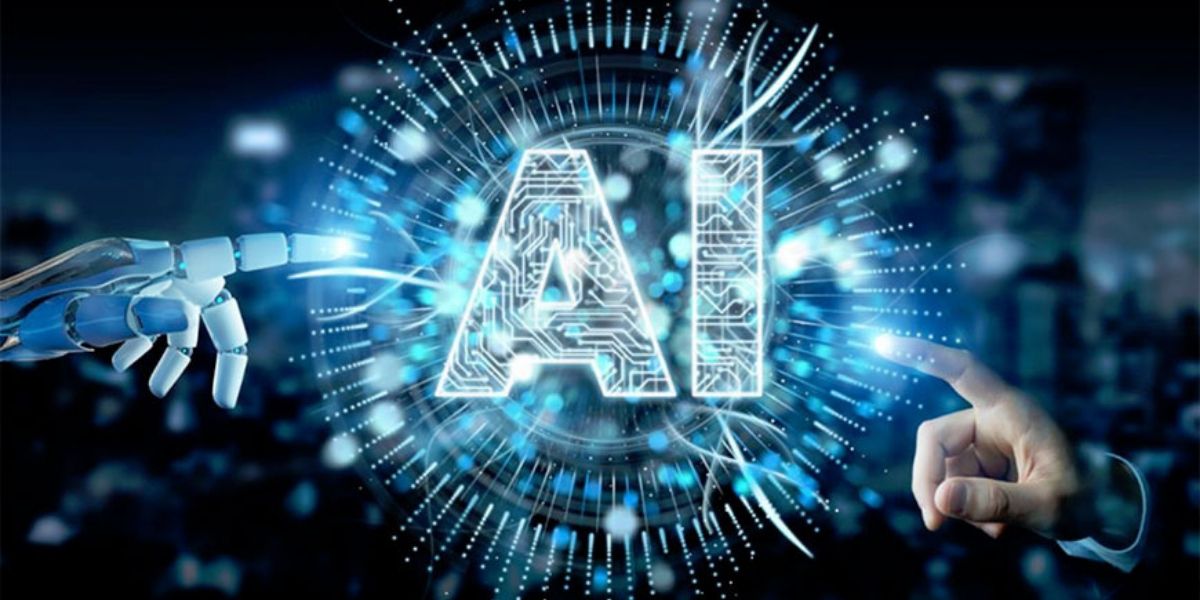Artificial Intelligence (AI) is a transformative technology that aims to create intelligent machines capable of performing tasks that typically require human intelligence. With its ability to analyze complex data, learn from experience, and adapt to new situations, AI has the potential to revolutionize numerous industries and improve our daily lives. In this article, we will explore the fascinating world of artificial intelligence, delve into its fundamental concepts, real-world applications, ethical considerations, and the future implications of this rapidly advancing field.
1. Understanding Artificial Intelligence
Artificial Intelligence refers to the development of intelligent machines that can perform tasks that typically require human intelligence. It encompasses a wide range of subfields, including machine learning, natural language processing, computer vision, and robotics. AI systems aim to emulate human cognitive functions, such as perception, reasoning, learning, and problem-solving.
2. Types of Artificial Intelligence
2.1 Narrow AI
Narrow AI, also known as weak AI, refers to AI systems that are designed for specific tasks and have a narrow range of capabilities. Examples include virtual assistants, image recognition systems, and recommendation algorithms. Narrow AI excels at performing well-defined tasks but lacks the broader cognitive abilities of human intelligence.
2.2 General AI
General AI, also referred to as strong AI, aims to create machines that possess human-level intelligence and can understand, learn, and perform any intellectual task that a human being can. General AI remains an area of active research and is yet to be fully realized. Achieving general AI would require machines to exhibit not only specialized intelligence but also a comprehensive understanding of the world and the ability to reason and generalize across various domains.
2.3 Superintelligent AI
Superintelligent AI surpasses human intelligence in virtually every aspect and possesses the ability to outperform humans in any intellectual task. This level of AI represents a hypothetical future development and raises profound questions about its implications and impact on society.

3. How Artificial Intelligence Works
Artificial Intelligence systems rely on data, algorithms, and computational power to perform tasks. Machine learning, a subset of AI, enables systems to learn from data and improve their performance without being explicitly programmed. This involves training AI models on large datasets, extracting patterns and relationships from the data, and using them to make predictions or take actions.
4. Real-World Applications of Artificial Intelligence
4.1 Healthcare
Artificial Intelligence has transformative potential in healthcare. It can aid in disease diagnosis, personalized treatment planning, drug discovery, and medical image analysis. AI algorithms can analyze vast amounts of medical data, detect patterns, and provide valuable insights to assist healthcare professionals in making accurate diagnoses and delivering precise treatments.
4.2 Finance
In the finance industry, AI is utilized for fraud detection, algorithmic trading, risk assessment, and customer service. AI-powered algorithms can analyze financial data, identify anomalies, predict market trends, and automate trading processes. This improves efficiency, reduces risks, and enhances decision-making in financial institutions.
4.3 Transportation
Artificial Intelligence plays a crucial role in the development of autonomous vehicles, traffic management systems, and logistics optimization. AI algorithms enable self-driving cars to perceive their environment, make real-time decisions, and navigate safely. Additionally, AI-based traffic management systems can optimize traffic flow, reduce congestion, and enhance transportation efficiency.
4.4 Manufacturing
AI is transforming the manufacturing industry by enabling automation, predictive maintenance, and quality control. AI-powered robots and machines can perform repetitive tasks with precision, reducing human error and increasing productivity. Machine learning algorithms can analyze sensor data to predict equipment failures, schedule maintenance proactively, and optimize production processes.
4.5 Customer Service
AI-powered chatbots and virtual assistants are revolutionizing customer service by providing personalized and efficient support. Natural language processing enables these AI systems to understand and respond to customer queries, provide recommendations, and offer assistance. This enhances customer experiences and streamlines customer service operations.
5. Ethical Considerations in Artificial Intelligence
As artificial intelligence becomes more pervasive, it raises important ethical considerations that need to be addressed:
5.1 Privacy and Data Protection
AI systems rely on vast amounts of data, which raises concerns about privacy and data protection. Safeguarding personal information and ensuring transparent data practices are crucial to maintain trust in AI technologies.
5.2 Bias and Fairness
AI systems can inadvertently perpetuate biases present in the data used for training. Ensuring fairness, accountability, and transparency in AI algorithms is essential to prevent discriminatory outcomes and promote unbiased decision-making.
5.3 Job Displacement
The automation potential of AI has sparked concerns about job displacement. While AI may eliminate certain tasks, it also has the potential to create new job roles and opportunities. Preparing the workforce through reskilling and upskilling initiatives is crucial to navigate the changing employment landscape.
5.4 Autonomous Weapons
The development of AI-powered autonomous weapons raises ethical questions regarding their use, accountability, and adherence to international laws. Ensuring responsible use and human oversight in the deployment of autonomous weapon systems is vital to prevent unintended consequences.

6. The Future of Artificial Intelligence
The future of artificial intelligence holds immense potential. Advancements in machine learning, natural language processing, and robotics will continue to drive progress in the field. AI is expected to transform various industries, improve decision-making, enable personalized experiences, and contribute to solving complex global challenges.
Conclusion
Artificial Intelligence is reshaping the world we live in, from healthcare to finance, transportation to customer service. As AI technologies continue to evolve, it is crucial to address ethical considerations and ensure responsible development and deployment. By harnessing the power of AI while safeguarding privacy, fairness, and transparency, we can unlock the full potential of intelligent machines and create a future that benefits humanity.
